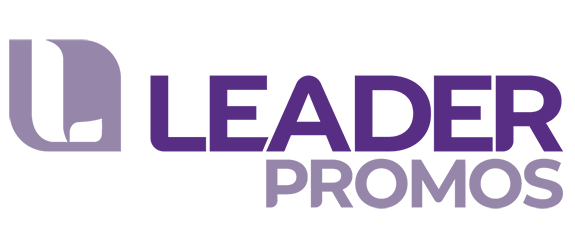

Leader Promotions, Inc.

Ohio, United States
October 2023
Other/general wholesale trade
Wholesale/Retail
Canada,
United Kingdom,
United States
Leaderpromos Marketing Agency provides purpose-driven branded merchandise. It is the largest B Corp and WBENC certified, wholly woman-owned and led promotional marketing agency in North America. Headquartered in Columbus, Ohio, the Leaderpromos team includes over 120 professionals in locations across the globe who are committed to helping the world’s leading and most successful brands elevate their marketing through strategic employee, customer and community engagement. Stephanie Leader founded Leaderpromos in 1995 to help pay for college while working towards a pre-law degree. What started as selling branded Greek life merchandise blossomed into a passion for creating memorable marketing experiences. Through strategic leadership, DEI and an emphasis on sustainability, Stephanie has led Leaderpromos to become recognized as a Top 40 distributor, ranked number 27 out of 28,000 distributors in the promotional marketing industry. Learn more at leaderpromosagency.com
Overall B Impact Score
Governance 13.7
Governance evaluates a company's overall mission, engagement around its social/environmental impact, ethics, and transparency. This section also evaluates the ability of a company to protect their mission and formally consider stakeholders in decision making through their corporate structure (e.g. benefit corporation) or corporate governing documents.
What is this? A company with an Impact Business Model is intentionally designed to create a specific positive outcome for one of its stakeholders - such as workers, community, environment, or customers.
Workers 24.0
Workers evaluates a company’s contributions to its employees’ financial security, health & safety, wellness, career development, and engagement & satisfaction. In addition, this section recognizes business models designed to benefit workers, such as companies that are at least 40% owned by non-executive employees and those that have workforce development programs to support individuals with barriers to employment.
Community 24.5
Community evaluates a company’s engagement with and impact on the communities in which it operates, hires from, and sources from. Topics include diversity, equity & inclusion, economic impact, civic engagement, charitable giving, and supply chain management. In addition, this section recognizes business models that are designed to address specific community-oriented problems, such as poverty alleviation through fair trade sourcing or distribution via microenterprises, producer cooperative models, locally focused economic development, and formal charitable giving commitments.
Environment 14.1
Environment evaluates a company’s overall environmental management practices as well as its impact on the air, climate, water, land, and biodiversity. This includes the direct impact of a company’s operations and, when applicable its supply chain and distribution channels. This section also recognizes companies with environmentally innovative production processes and those that sell products or services that have a positive environmental impact. Some examples might include products and services that create renewable energy, reduce consumption or waste, conserve land or wildlife, provide less toxic alternatives to the market, or educate people about environmental problems.
Customers 3.7
Customers evaluates a company’s stewardship of its customers through the quality of its products and services, ethical marketing, data privacy and security, and feedback channels. In addition, this section recognizes products or services that are designed to address a particular social problem for or through its customers, such as health or educational products, arts & media products, serving underserved customers/clients, and services that improve the social impact of other businesses or organizations.